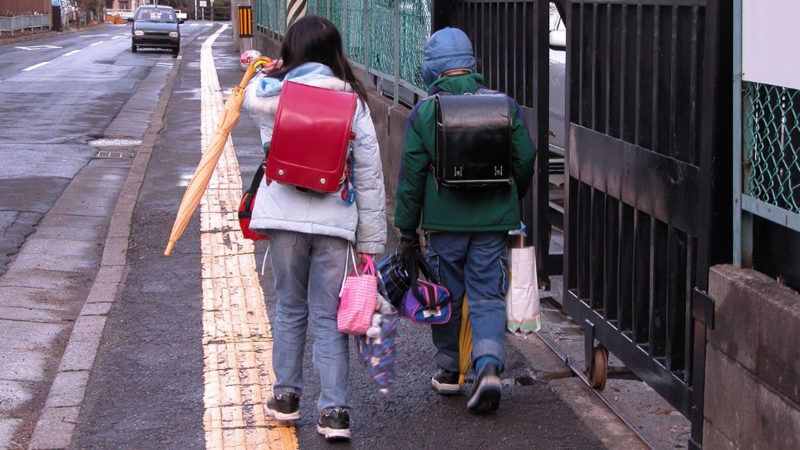Murky Laws Make It Too Easy To Label Good Parents 'Neglectful'
Everyday parenting decisions should not put people at risk of getting arrested, losing their kids, or being listed on a state registry for child endangerment.

Is it legal for parents to let their kids play outside on their own or stay home alone for a little while? That's a simple question without a simple answer.
At Let Grow, the nonprofit I co-founded to promote childhood independence, we just completed a first-of-its-kind study of all 50 states' neglect laws. I am sorry to report that a large majority say parents must not deprive a child of "supervision" or "proper care" but do not explain exactly what those terms mean. Others say parents may not expose their kids to "risk," without specifying how big or dangerous that risk has to be in order to be prohibited. Too much is left to the discretion of the authorities, which is why you've heard of parents arrested or investigated for letting their 8-year-old walk the dog or letting their 9-year-old play at the park while her mother worked a shift at McDonald's.
Recently I heard from a South Carolina mom who wondered if her kids in first, third, and fifth grade were allowed to walk the mile home from school. The kids, who walk all around town, were psyched about the idea, but the principal decreed that an adult must accompany them. So could the mother get arrested—or even lose her kids—for letting them hoof it?
South Carolina's criminal law is virtually silent on what specifically constitutes child endangerment. Meanwhile, the rules enforced by the state's Child Protective Services, an agency that has the power to put kids in foster care, say children are neglected if their parent engages in "behavior" or an "occupation" that could endanger others. Does that merely refer to a mom who is making meth—or could it also apply to one who lets her kids walk home alone? And who gets to decide if the walk home counts as dangerous? The principal? A social worker? A judge?
A bill aimed at fixing that statute passed South Carolina's Senate unanimously in 2019 but had to be shelved in 2020 when the COVID-19 pandemic shut the legislature. Left hanging was the question: Shouldn't parents be allowed to decide how much independence their kids are ready for?
"Parents largely remain in the dark as to when and how they can safely make those basic decisions," longtime civil rights lawyer and Let Grow consultant Diane Redleaf writes for the American Bar Association's Children's Rights Litigation newsletter. Redleaf, a co-chair of United Family Advocates, is working on narrowing neglect laws—and boy, do they need narrowing.
Alabama, Alaska, South Dakota, Virginia, and Washington, D.C., all define a lack of supervision as "neglect," leaving parents to divine what qualifies as a lack of supervision. Some states throw proper or adequate in front of supervision, but that does not make things any clearer.
And then there are the laws that aren't murky, just awful. Connecticut criminal law says parents who leave kids under age 12 alone, even at home, can be found guilty of neglect. Twelve! "Obviously," says a pamphlet from the Tennessee court system, "young children under age 10 should not be left without supervision at any time." That's not so obvious to me, but Michigan has the same policy. Louisiana says it's illegal to leave a child in a car if the adult is more than 10 feet away. Good luck returning that shopping cart!
Not that most parents will ever be investigated for walking 11 feet from the car or letting their kids stay home while they run out to get toilet paper. But these policies can create a chilling effect, causing parents to worry they could be second-guessed by cops or caseworkers with very different ideas of what is reasonably safe.
Everyday parenting decisions should not put people at risk of getting arrested, losing their kids, or being listed on a state registry for child endangerment. In 2018, Utah passed the nation's first "Free-Range Parenting" law, which states that it is not neglect to let kids walk or play outside, stay home alone, or wait briefly in the car in some circumstances.
This is a better approach: Behavior does not rise to "neglect" unless it involves "blatant disregard" of obvious, likely, and serious danger. That is the wording Illinois enacted in 2013.
When kids learn how to manage the reasonable risks that come with childhood, that's not neglect. That's growing up.


Show Comments (63)